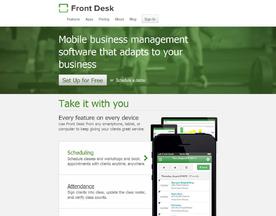How to start a bakery ? Plan your bakery concept, secure funding, find the perfect location, equip your kitchen, hire staff, and market your grand opening to attract customers!
Learning how to start a bakery can be a challenging and rewarding venture. From conceptualizing your bakery to launching it, there are many steps involved in the process. However, with careful planning and execution, you can turn your dream of owning a bakery into a successful reality.

Conceptualizing Your Bakery: Before learning how to start your bakery, you need to have a clear vision of what you want to achieve. This includes deciding on the type of bakery you want to open, the products you want to sell, and the target market you want to serve. You should also research the competition in your area to identify gaps in the market and differentiate yourself from other bakeries.
Creating a Business Plan: A business plan is essential for any new business, including a bakery. It outlines your goals, strategies, and financial projections, and helps you secure funding from investors or lenders. Your business plan should include details on your bakery’s concept, target market, pricing strategy, marketing plan, and financial projections.
Key Takeaways
- Conceptualize your bakery by deciding on the type of bakery, products, and target market.
- Create a detailed business plan that includes your goals, strategies, and financial projections.
- Research the competition to identify gaps in the market and differentiate yourself from other bakeries.
Link to external resource SBA.
Conceptualizing Your Bakery

When learning how to start a bakery, it is important to have a clear vision of what you want to offer and who you want to serve. Conceptualizing your bakery involves determining the type of bakery format, menu, and target market that will best suit your goals.
Choosing a Bakery Format
There are several bakery formats to consider, including specialty bakeries, home bakeries, food truck bakeries, bakery cafes, and donut shops. Each format has its own advantages and disadvantages, and it is important to choose the one that aligns with your vision and goals.
Deciding on Your Menu
Your bakery menu should reflect the type of bakery format you have chosen and the preferences of your target market. Consider offering a variety of baked goods, including bread, pastries, cakes, and cookies. If you plan to cater to a specific dietary need, such as gluten-free or vegan, be sure to include options for those customers.
Understanding Your Target Market
Knowing your target market is crucial to the success of your bakery. Consider factors such as age, income, and location when determining who your ideal customer is. This will help you tailor your menu and marketing efforts to reach your target audience effectively.
When conceptualizing your bakery, it is important to have a clear understanding of your goals and vision. By choosing the right bakery format, menu, and target market, you can set your bakery up for success.
For more information on conceptualizing and how to start a bakery, check out this helpful resource.
Creating a Business Plan
A bakery business plan is a crucial document that outlines the goals, strategies, and financial projections for your business. It provides a roadmap for success and helps secure funding from investors or lenders. Here are the essential elements of a bakery business plan:
Executive Summary
The executive summary is a brief overview of your bakery business plan. It should include a mission statement, business description, target market, unique selling proposition, and financial projections. The goal is to provide a snapshot of your business and convince investors to read further.
Market Analysis
The market analysis section of your bakery business plan should include an overview of the bakery industry, target market demographics, competition analysis, and marketing strategies. You should research the latest bakery industry trends and understand your target market’s needs and preferences. This information will help you create a competitive advantage and differentiate your bakery from the competition.
Financial Projections
The financial projections section of your bakery business plan should include income statements, balance sheets, cash flow statements, and break-even analysis. You should project your revenue, expenses, and profits for at least three years. You should also consider the startup costs, such as equipment, inventory, and marketing expenses. This information will help you determine the amount of funding you need and when you can expect to break even.
To write a bakery business plan, you can use online resources such as the Small Business Administration’s guide to writing a business plan. Additionally, you can seek advice from industry experts or hire a professional business plan writer. A well-written bakery business plan can help you secure funding, attract customers, and achieve long-term success.
Here is a link to the Small Business Administration’s guide to writing a business plan to learn how to start a bakery.
Legal and Financial Foundations

Learning how to start a bakery requires a solid legal and financial foundation. Here are some important steps to take when setting up your bakery business.
Choosing a Business Entity
Before learning how to start a bakery, it is important to choose the right business entity. The most common types of business entities are sole proprietorship, corporation, and limited liability company (LLC). Each type has its own advantages and disadvantages. A sole proprietorship is the simplest form of business entity and requires the least amount of paperwork. However, it also exposes the owner’s personal assets to business liabilities. A corporation and LLC offer limited liability protection, but require more paperwork and formalities.
Registering Your Business Name
Once you have chosen your business entity, you will need to register your business name. This involves checking if the name is available and registering it with the appropriate state agency. It is important to choose a name that is unique and easy to remember.
Obtaining Licenses and Permits
Bakeries require various licenses and permits to operate legally. Some common licenses and permits include a business license, food service permit, and health department permit. The requirements may vary depending on your location, so it is important to research and obtain all the necessary licenses and permits before opening your bakery.
Securing Funding
Learning how to start a bakery can be expensive, and securing funding is an important step in the process. Some options for funding include loans from lenders, crowdfunding, and investors. It is important to have a solid business plan and financial projections when seeking funding.
It is recommended to consult with a lawyer and accountant when setting up your bakery business to ensure that all legal and financial requirements are met. The Small Business Administration (SBA) is also a great resource for information on starting and running a small business.
Here is a link to the SBA’s guide on choosing a business structure and how to start a bakery.
Location and Space Planning

When learning how to start a bakery, selecting the right location and planning the space are crucial to its success. This section will cover the key considerations for location and space planning, including selecting the right location, negotiating a lease, and designing your bakery’s layout.
Selecting the Right Location
Selecting the right location for your bakery is crucial to its success. You need to consider factors such as foot traffic, accessibility, and zoning regulations. It’s important to choose a location that is easily accessible to your target customers and has a high volume of foot traffic. You should also consider the zoning regulations in the area to ensure that your bakery is compliant with local laws.
One useful resource for finding the right location is the commercial real estate agent. They can help you find a suitable commercial space that meets your specific needs. You can also use online resources such as LoopNet to search for commercial real estate listings in your area.
Negotiating a Lease
Negotiating a lease is an important part of securing a commercial space for your bakery. You should carefully review the lease agreement and negotiate favorable terms that meet your needs. It’s important to consider factors such as lease length, rent, and maintenance responsibilities.
When negotiating a lease, it’s important to work with a lawyer who specializes in commercial real estate. They can help you understand the terms of the lease and ensure that you’re getting a fair deal.
Designing Your Bakery’s Layout
Designing your bakery’s layout is another important consideration. You need to consider factors such as the dining space, seating, atmosphere, and accessibility. You should also consider the needs of your customers, such as those with disabilities or allergies.
One useful resource for designing your bakery’s layout is the National Restaurant Association. They offer resources and guidelines for designing a restaurant or bakery that meets the needs of your customers.
In conclusion, how to start a bakery? Selecting the right location and planning the space are crucial to the success of your bakery. By carefully considering factors such as foot traffic, accessibility, and zoning regulations, negotiating a favorable lease, and designing a layout that meets the needs of your customers, you can create a successful bakery that attracts and retains loyal customers.
Setting Up Your Bakery
Learning how to start a bakery can be an exciting and rewarding venture for those who love to bake. However, setting up a bakery can be a daunting task, especially if you are new to the business. Here are some steps to help you get started.
Purchasing Equipment
One of the first steps in setting up your bakery is purchasing the necessary equipment. This includes bakery equipment such as ovens, mixers, and proofers. It is important to research and purchase equipment that is appropriate for the size and type of bakery you plan to operate. You can find a wide range of bakery equipment from reputable suppliers such as Bakery Equipment.com.
Organizing Your Kitchen
Organizing your kitchen is essential to the success of your bakery. You need to make sure that your kitchen is clean, organized, and efficient. This includes arranging your equipment and tools in a logical manner, creating a work flow that makes sense, and keeping your ingredients and supplies well-stocked and organized. You can find some helpful tips on kitchen organization from The Spruce Eats.
Preparing for Safety and Health Regulations
Safety and health regulations are an important consideration when setting up your bakery. You need to make sure that your kitchen meets all the necessary safety and health regulations, including fire safety, food safety, and hygiene. This includes obtaining the necessary permits and licenses, implementing good hygiene practices, and ensuring that your kitchen is equipped with the appropriate safety equipment. You can find more information on safety and health regulations from The National Restaurant Association.
By following these steps, you can to learn how to start a bakery and set up your bakery for success. With the right equipment, a well-organized kitchen, and a focus on safety and health, you can create delicious baked goods that will keep your customers coming back for more.
Staffing and Operations

Hiring Qualified Staff
One of the most important aspects of how to start a bakery is hiring qualified staff. The owner should look for individuals who have experience in the baking industry and are passionate about creating high-quality baked goods. It is also essential to find staff members who have excellent customer service skills and are able to work well in a team environment.
To find qualified staff, the owner can post job listings on online job boards, social media, and local newspapers. The owner can also consider reaching out to culinary schools and baking programs to find potential candidates.
Training Your Team
Once the owner has hired qualified staff, it is important to provide them with proper training. This includes training on baking techniques, customer service, and safety procedures. The owner can create a training manual that outlines all of the necessary procedures and expectations for their team.
It is also important to provide ongoing training to ensure that the staff is up-to-date on the latest baking techniques and trends. This can include attending baking conferences or workshops, or providing in-house training sessions.
Establishing Standard Operating Procedures
To ensure that the bakery runs smoothly and efficiently, it is important to establish standard operating procedures. This includes procedures for opening and closing the bakery, preparing baked goods, and handling customer orders.
The owner can create a standard operating procedures manual that outlines all of the necessary procedures and expectations for their staff. This can include checklists, recipes, and customer service guidelines.
By hiring qualified staff, providing proper training, and establishing standard operating procedures, the owner can ensure that their bakery runs smoothly and provides high-quality baked goods to their customers.
For more information on hiring and training staff for a bakery to learn how to start a bakery, check out this resource.
Marketing and Advertising
Learning how to start a bakery business requires a solid marketing and advertising plan to reach out to potential customers. Here are some essential steps to develop a successful marketing strategy:
Developing a Marketing Strategy
Before launching your bakery, it’s crucial to conduct market research to determine your target audience, competition, and market trends. This information will help you create a marketing plan that speaks directly to your potential customers.
Your marketing strategy should include specific goals, such as increasing brand awareness, driving foot traffic to your bakery, and boosting sales. It should also outline the tactics you’ll use to achieve these goals, such as advertising, promotions, and events.
Branding and Design
Branding is a critical aspect of any business, and your bakery is no exception. Your brand should reflect your bakery’s personality, values, and unique selling proposition. A well-designed logo, packaging, and storefront can help your bakery stand out from the competition and attract customers.
Investing in professional branding and design services can help you to learn how to start a bakery and create a cohesive and memorable brand that resonates with your target audience. Consider working with a graphic designer or branding agency to create a strong visual identity for your bakery.
Leveraging Social Media Marketing
Social media marketing is an effective way to reach out to potential customers and build a loyal following for your bakery. Platforms like Facebook, Instagram, and Twitter allow you to showcase your bakery’s products, share customer reviews, and promote special offers and events.
To leverage social media marketing effectively, you should create a content calendar that outlines the type of content you’ll post, how often you’ll post it, and the channels you’ll use. You should also engage with your followers by responding to comments and messages promptly.
One external resource that can help you learn more about social media marketing for bakeries is Bakery Business: How to Use Social Media to Promote Your Bakery by Bake Magazine.
By developing a solid marketing and advertising plan, you can promote your bakery effectively and attract a loyal customer base to learn how to start a bakery.
Financial Management

Learning how to start a bakery requires careful financial management to ensure the business stays afloat. In this section, we will discuss the key elements of financial management, including setting a budget, managing startup costs, and forecasting revenue and expenses.
Setting a Budget
The first step in financial management is setting a budget. This involves estimating the total costs to open a bakery, including startup costs, operating expenses, and licenses and permits. Once the total costs are estimated, a budget can be created to ensure the business stays within its financial means.
To create a budget, it is important to consider the industry standards for startup costs and operating expenses. According to The Balance Small Business, the cost to open a bakery can range from $10,000 to $50,000 or more, depending on the size and location of the bakery. Operating expenses, including rent, utilities, and supplies, can also vary depending on the bakery’s size and location.
Managing Startup Costs
Managing startup costs is critical to the success of a bakery. Startup costs can include equipment, inventory, and marketing expenses. It is important to prioritize the most essential items and purchase them first. For example, a commercial oven and mixer are essential to a bakery’s operations, while fancy decor or expensive packaging may not be necessary in the beginning stages.
To manage startup costs, it is also important to consider alternative funding options, such as loans or crowdfunding. Entrepreneur suggests that entrepreneurs should have a clear understanding of their credit score and financial history before seeking funding. It is also important to have a solid business plan and financial projections to present to potential investors or lenders.
Forecasting Revenue and Expenses
Forecasting revenue and expenses is crucial to financial management. This involves estimating the bakery’s potential revenue and expenses over a certain period of time, such as a year. Revenue can come from sales of baked goods, catering, and other services. Expenses can include rent, utilities, supplies, and labor costs.
To forecast revenue and expenses, it is important to consider the bakery’s target market and competition. It is also important to consider seasonal fluctuations in demand and adjust the budget accordingly. By accurately forecasting revenue and expenses, a bakery can make informed decisions about pricing, marketing, and staffing.
In conclusion, financial management is a critical component of learning how to start a bakery. By setting a budget, managing startup costs, and forecasting revenue and expenses, a bakery can stay financially stable and successful.
Launching Your Bakery

Learning how to start a bakery can be an exciting venture, but it requires careful planning and execution to be successful. Once you have completed the necessary steps to open your bakery, it’s time to launch it to the public. This section will cover some tips on how to start a bakery and start generating sales.
Planning a Grand Opening
A grand opening event can be an effective way to generate buzz and attract customers to your bakery. To plan a successful grand opening, consider the following:
- Set a date and time that is convenient for your target audience
- Create a marketing plan to promote the event, including social media, flyers, and local advertising
- Offer special promotions or discounts to incentivize customers to visit your bakery
- Prepare your staff to handle the increased traffic and provide excellent customer service
- Consider inviting local influencers or media outlets to attend the event and help spread the word
Starting Online and In-Store Sales
To maximize your sales potential, it’s important to offer both online and in-store sales options. This allows customers to order from the comfort of their own home or visit your bakery in person. To get started, consider the following:
- Create an online ordering system that is easy to use and secure
- Offer delivery or pickup options to accommodate different customer preferences
- Ensure that your website is optimized for search engines to increase your online visibility
- Provide a seamless customer experience both online and in-store to build brand loyalty
One high authority resource for launching a bakery is the Small Business Administration’s guide on How to Start a Bakery. This guide provides detailed information on the steps to take when learning how to start a bakery, including planning, financing, and marketing.
Growth and Expansion

As a bakery grows and becomes successful, owners may consider expanding their business. There are several ways to expand a bakery, including exploring wholesale opportunities and considering franchising or additional locations.
Exploring Wholesale Opportunities
One way to expand a bakery’s reach is by exploring wholesale opportunities. This involves selling products in bulk to other businesses, such as cafes, small businesses, food trucks, and grocery stores. By doing so, a bakery can increase its revenue and brand recognition.
When exploring wholesale opportunities, it’s important to consider the cost of production, transportation, and packaging. It’s also important to establish relationships with potential customers and ensure that the products meet their quality standards.
To learn more about wholesale opportunities, check out this guide on selling wholesale to retail stores to learn how to start a bakery.
Considering Franchising or Additional Locations
Another way to expand a bakery is by considering franchising or opening additional locations. Franchising allows a bakery to expand quickly and efficiently, while additional locations can increase the bakery’s presence in a specific area.
When considering franchising, it’s important to have a solid business model and a clear understanding of the legal and financial requirements. Franchisees should also be carefully selected and trained to ensure that they uphold the bakery’s standards and values.
Opening additional locations requires careful planning and research. Factors to consider include the local market, competition, and demographics. It’s also important to ensure that the bakery’s brand and products are consistent across all locations.
To learn more about franchising, check out this guide on franchising from the Small Business Administration to learn how to start a bakery.
Frequently Asked Questions

What are the initial steps to how to start a bakery business?
Learning how to start a bakery business requires careful planning and preparation. The first step is to research the market and identify your target customers. You will also need to develop a menu and decide on the type of bakery you want to open. Once you have a clear idea of your business plan, you can begin to secure financing, find a suitable location, and purchase equipment and supplies.
What licenses and permits are required to open a bakery?
Opening a bakery requires several licenses and permits, including a business license, food service permit, and health department permit. The specific requirements vary depending on the location and type of bakery. It is important to research the local regulations and obtain all necessary permits before opening your bakery.
What should be included in a bakery business plan?
A bakery business plan should include a description of your business, market analysis, marketing strategy, menu and pricing, financial projections, and management structure. It should also outline your goals and objectives and how you plan to achieve them. A well-written business plan can help secure financing and guide your business decisions.
What are the common pitfalls to avoid when opening a bakery?
Common pitfalls to avoid when opening a bakery include underestimating startup costs, overestimating demand, not conducting enough market research, and failing to develop a solid business plan. It is also important to have a strong understanding of the industry and stay up-to-date on trends and best practices.
How can one finance a bakery startup with limited funds?
There are several options for financing a bakery startup with limited funds, including taking out a small business loan, crowdfunding, or seeking out investors. It is important to carefully consider the pros and cons of each option and develop a solid financial plan to ensure the long-term success of your business.
What are the profitability expectations for a new bakery?
The profitability of a new bakery depends on several factors, including location, pricing, and competition. According to a report by IBISWorld, the average profit margin for bakeries in the United States is around 6%. However, profitability can vary widely depending on the specific bakery and its business model. It is important to carefully monitor expenses and adjust pricing and marketing strategies as needed to maximize profitability.
For more information on how to start a bakery, check out this guide.















